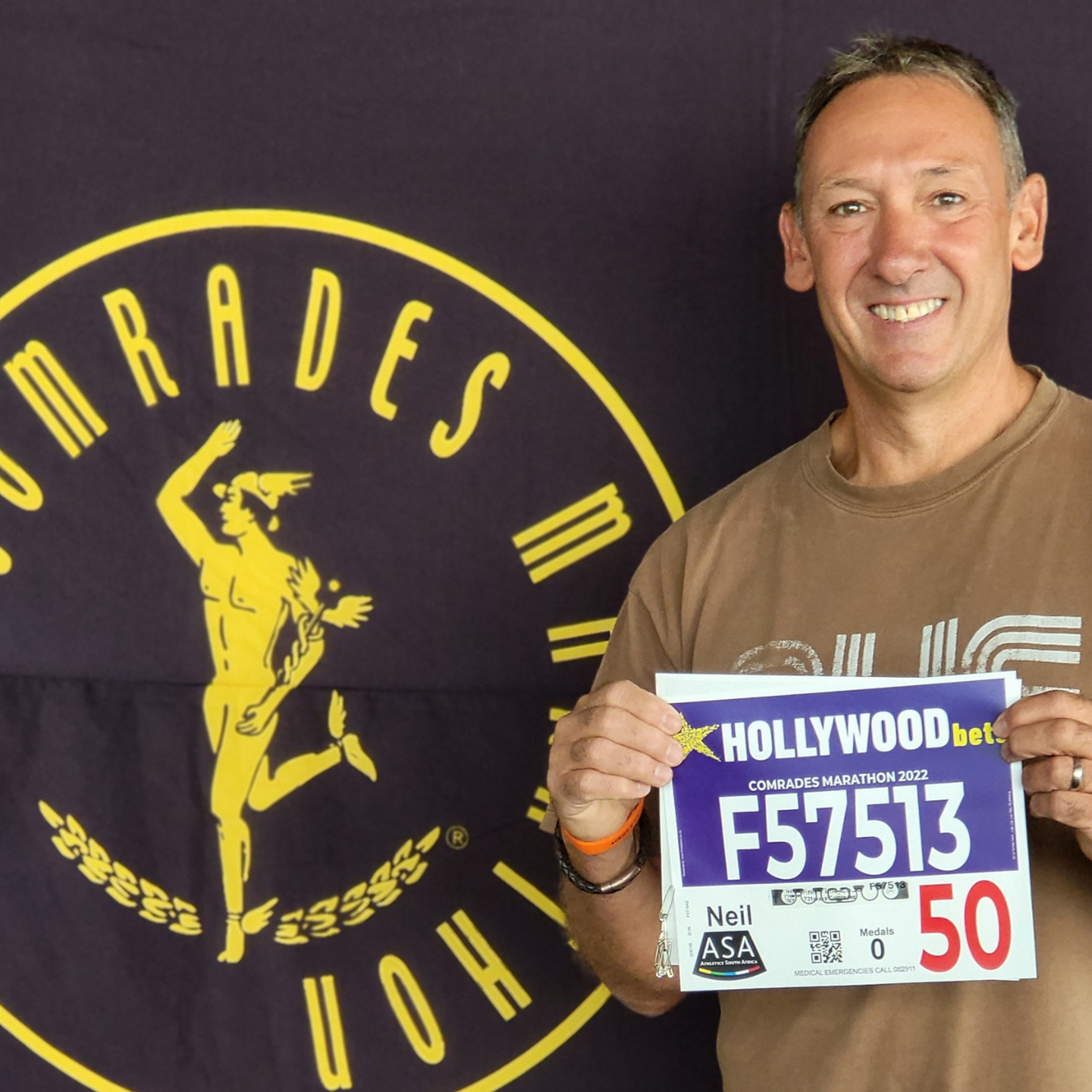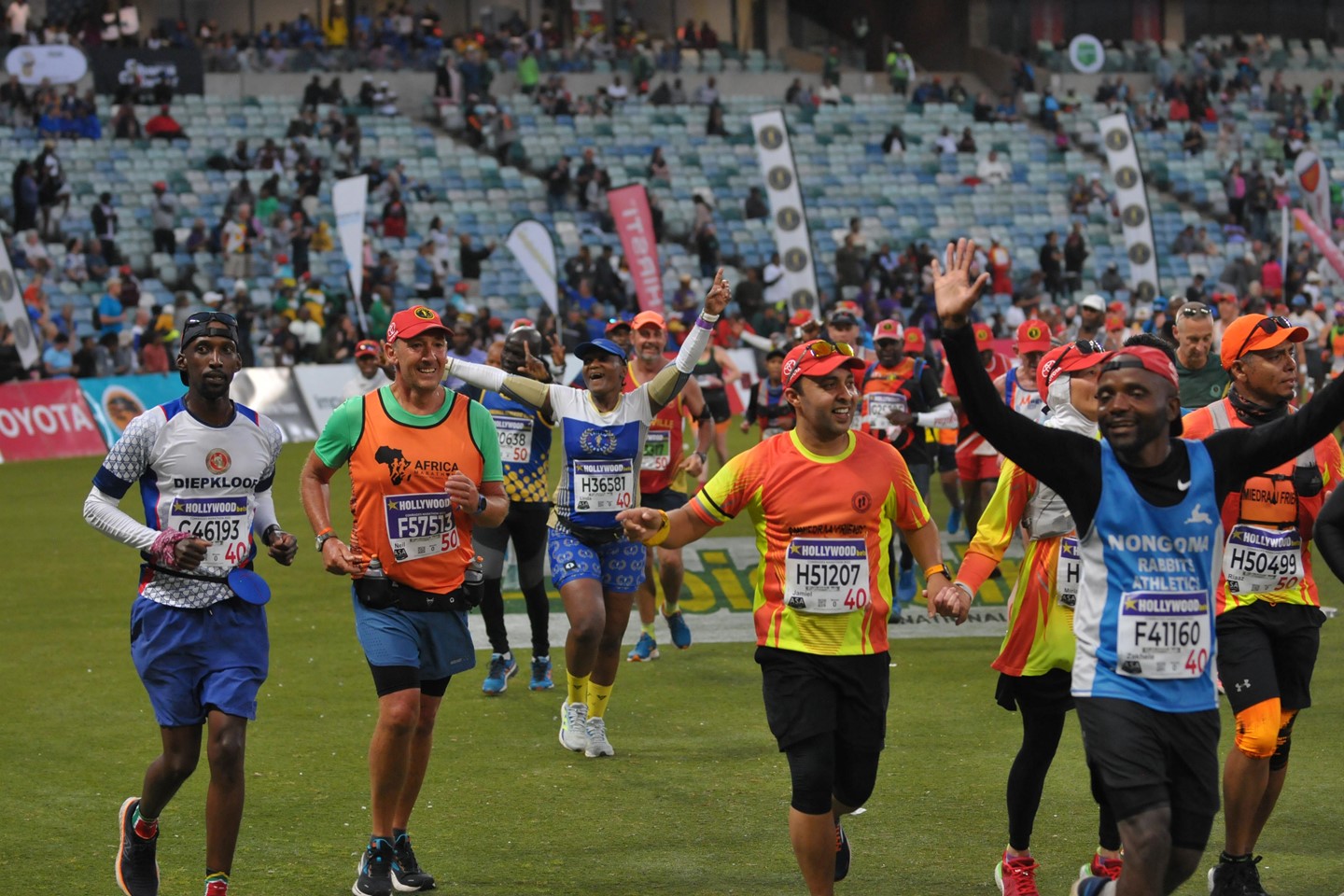In the world of running, where distances are measured not just in miles but in feats of human endurance, the ultramarathon stands as one of the biggest physical and mental challenges.
An ultramarathon, often referred to simply as an "ultra," is any footrace longer than the traditional marathon distance of 26.2 miles (42.195 kilometres). Ranging from 50 kilometres to several hundred miles in length, ultramarathons come in various formats, including point-to-point courses, loops, multi-day stage races, and even self-supported adventures through rugged terrain.
Neil, our Sports Bookings Officer, is taking part in not just one, but two in two months to raise important funds for Prostate Cancer UK, a cause affecting Neil personally, having been diagnosed with the condition this year.
He used to run in his twenties, mostly half marathons, but other sports and family life pushed his running aside a little. Neil then found his love for the sport again whilst travelling in Australia and New Zealand just before Covid.
Neil’s first ultramarathon was Comrades in South Africa in 2022. Comrades is a 56-mile road Ultra and very much part of South African folklore!
When asked why he is doing two this year, Neil said: “I love the challenge, it’s as simple as that. Why do one when you could do two!”
“There is a quote by Dean Karnazes an American Ultra runner that I love – If you want to run, run a mile. If you want to change your life, run a marathon. If you want to meet God, run an Ultra. I love the challenges both mentally and physically of when everything about you is exhausted and figuring how to solve those challenges.”
He is taking on the Double Top Ultramarathon on May 4th, which is a 40-mile challenge in Jersey, as well as The Wall, an Ultramarathon following Hadrian’s Wall from Carlisle to Newcastle on June 15th which is 70 miles long.
Neil’s training started on January 1st, but how does he train for such an intense distance?
“I run four days a week. Typically, two long road runs, a slow recovery run, normally around Queens Valley and a cliff path run. I also have two days where I do strength and conditioning work and one rest day. I’m also active in other ways such as cycling to work and sea swimming when I can.”
“I’m running well currently. There is always something going on regarding niggles, especially when your 57! My right knee has been grumbling but I’m confident it’s just a grumble and nothing more. I have a zoom call with my running coach every Sunday. We discuss the week just gone and plans for the week ahead.”
And staying motivated isn’t a problem for Neil!
“I love the feeling of running so I’m always motivated to get out. Each race brings with it a training block (a training period) usually 16-20 weeks. I love working through the process as it evolves. The race is the lap of honour at the end of it.”
Neil was recently diagnosed with prostate cancer, and is raising money for Prostate Cancer UK in both of his ultramarathons, you can donate to him here:
Donate to Neil's Just Giving here
“I would like to be seen as an example that the condition is nothing to be afraid of, if its caught early. I was diagnosed soon after starting my training for these Ultras. I am running well despite that diagnosis. I do have hydration issues as holding water is now a challenge, but it just means adapting plans around long runs. If my challenges can also raise awareness that men should not feel hesitant to get tested, then it’s worth it!”
Participating in ultramarathons has impacted Neil’s perspective on challenges and endurance. “Every race teaches you something new. I’ve not completed a race without mistakes yet, but you learn from them. My mindset to challenges has certainly become stronger and more resilient. When training for Comrades for instance, I was watching a promotional video of the race, in which the race director said that “no matter what challenge lies in front of you, it is never stronger than what lies within you” I often think of that during tough times in a race, or in general day to day life.”

Neil’s tips for getting through the “Pain Cave”:
“Marathons are not easy! A lot of Ultra runners will talk about the “pain cave”. It’s a place you enter when there is nothing more to give. It’s how you deal with living in that space that determines how you come out the other side.
Embracing it and learning to enjoy the challenge is the key. It is what you have been training for so long for.
As hard as it can be, you need to rationalise difficult situations when they come. Difficult moments or low energy levels will pass if you know what to do to correct them, whether that be through slowing down for a while or taking on hydration or nutrition.
If you’re thinking of doing a similar challenge for charity, commit to it but enjoy the process and stick to the plan. Don’t take it too seriously and don’t overthink it.”

